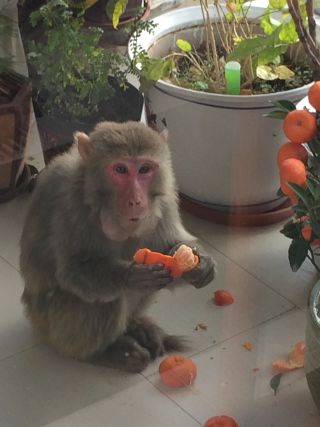Anger
Does a Sense of Injustice Affect Mental Health?
Being treated unfairly can result in a double insult—but you can prevent it.
Posted April 22, 2024 Reviewed by Abigail Fagan
Key points
- A sense of injustice is a biologically-rooted response that is also present in primates.
- The response is facilitative to long-term group cooperation.
- A protracted sense of injustice may be detrimental to mental health.
We often experience a sense of indignation when we encounter a situation that we regard as unfair taking place in our environment. Interestingly, this can happen not only when we are direct recipients of the unfair treatment, but it can also occur even when we observe injustice being done to others not directly related to us. This sense of injustice can result in a feeling of anger and can compel us to take action to confront the source of injustice.
The biology of “sense of injustice”
Is this “sense of injustice” only a result of our moral and social values? Or could it be something that is more deeply ingrained in human nature? We can take a look from an evolutionary perspective. Importantly, a sense of injustice appears to be also present in primates other than humans, suggesting deep biological roots (Brosnan and de Waal 2003).

In primates with prominent group cooperation with genetically unrelated individuals, it was observed that a sense of injustice when being rewarded less than another conspecific performing the same task can lead to protest behaviour that involves anger and rejection of the unjust reward (inequality aversion). In addition, in chimpanzees it has been observed that even the individual offered more than an equal share can show aversive behaviour (second-order inequality aversion) (Brosnan and de Waal, 2014).
Sense of injustice and mental health
Does a sense of Injustice have mental health consequences? Sense of injustice is common in populations that experience large-scale conflicts such as war and serious protests. In conflict situations, mental health information may be scarce, particularly in a suppressed population. One of the exceptions is a study carried out after the conflicts related to the independence process of East Timor. A six-year follow-up study was carried out to look at mental health outcomes. It was found that apart from direct trauma, preoccupations with a sense of injustice over events were an independent predictor of poor mental health outcomes (Silove et al 2014).
Is having a sense of injustice unhealthy?
Is a sense of injustice, then, a maladaptive behavior? This sentiment leads to feelings of anger and confrontative behaviour. Could there be a healthy biological function of the sense of injustice, given that its presence is also observed in other primates? One possible perspective is that such sentiments and their expressions lead to behaviour that help a group to survive better as a whole by fine-tuning the sharing of payoffs. Feelings of injustice and behavioural protest may provide important social signals to ensure long-term collaborative arrangements in the group. We can observe from the animal study example that in the short term, emotion and behaviour as a result of the sense of injustice may be costly for the individual. It would be against the background of long-term adaptability for the whole group that such sentiment and behaviour are inherited in the group. Of course, human individuals may choose to override the sentiment and behaviour related to injustice especially when the injustice is not directly affecting them. This results in a situation where injustice may be maintained in a group particularly when the individual cost of behavioural response is high. Such situations may occur in repressive human communities and have been described in the phenomena of “conspiracy of silence”.
How can a sense of injustice be managed from a mental health perspective?
While the evolutionary perspective provided a biological basis for the sense of injustice, the human environment we find ourselves in today may be different from the environment that shaped the evolution of the human brain. We are no longer hunter-gatherers living and cooperating in smaller communities. Instead, we are living in complex societies exposed to global cooperation and tensions in which individual expression of “injustice” may not produce impactful results. It is the preoccupation of a sense of injustice that is associated with poor mental health outcomes. Preoccupations take place when one’s mind is engaged in a situation in which there is no apparent solution. Individuals should be aware that prolonged engagement in these situations may incur mental health consequences. If the external circumstances cannot be changed, it may be necessary to take measures to reduce prolonged preoccupations.
References
Brosnan SF, De Waal FBM. Monkeys reject unequal pay. Nature. 2003; 425:297–299. doi: 10.1038/ nature01963; pmid: 13679918.
Brosnan, S. and de Wall, F. (2014) Evolution of responses to (un)fairness. Science. 2014 October 17; 346(6207): 1251776. doi:10.1126/science.1251776.
Silove D, Liddell, B, Rees, S et al. (2014) Effects of recurrent violence on post-traumatic stress disorder and severe distress in conflict-affected Timor-Leste: a 6-year longitudinal study. Lancet Glob Health 2014; 2: e293–300


